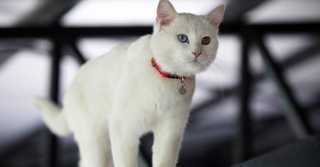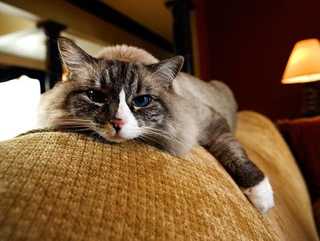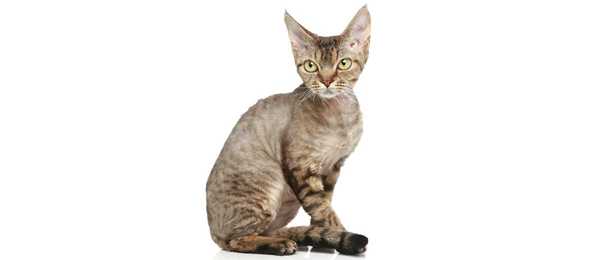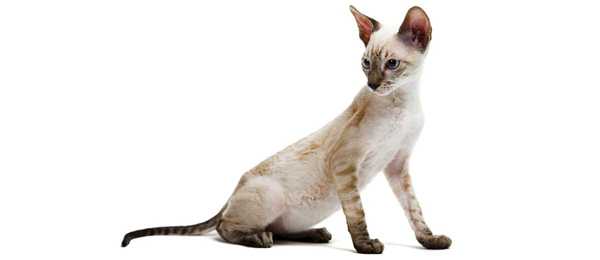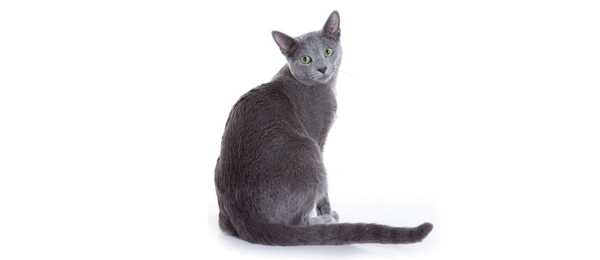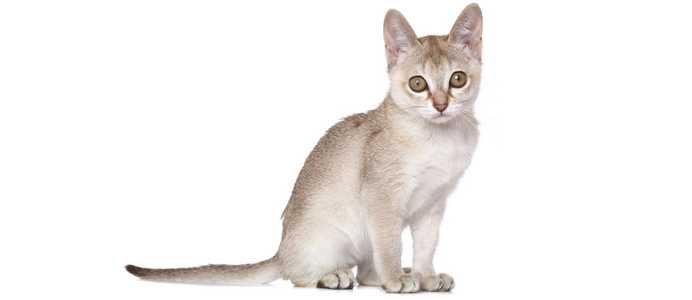
The appearance of an alert healthy small- to medium-sized muscular bodied cat with noticeably large eyes and ears in proportion to its head. Cat to have the illusion of refined delicate coloring.
Playfulness
Activity Level
Friendliness to Other Pets
Friendliness to Children
Grooming Requirements
Vocality
Need for attention
Affection towards owners
Docility
Intelligence
Independence
Hardiness
Disclaimer: While the characteristics mentioned here may frequently represent this breed, cats are individuals whose personalities and appearances will vary. Please consult the adoption organization for details on a specific pet.
Personality
The Singapura took its name from the Malay word for the Republic of Singapore, Singapura, which means “lion city.” That’s why Singapuras are known as little lions of love. Puras, happily unaware of the controversy that surrounded their creation, go right on being what they are: people pleasers.
At home in any situation, Puras love to be the center of attention, and they don’t seem to know the word stranger; they’re at the door with you to welcome anyone, whether they’re friends and family, or door to door salespeople. They’re curious, people-oriented, and remain playful well into old age. Their voices are quiet and unobtrusive, and they trust their humans implicitly.
Singapuras are not quite as active as Abyssinians, but they are plenty spirited nonetheless. These are busy cats with a daily agenda. They’re curious, affectionate, almost too intelligent, and are very much in tune with their favorite humans’ moods. They want to help with everything, whether you want them to or not. They help cook, clean, and help you make the beds as long as you don’t mind little furry lumps under the covers. Most important, they are as affectionate as they are active. As soon as a human friend provides an empty lap, they stop zipping around and settle in for a good session of petting, purring, forehead kisses, and loving looks from those large, liquid, trusting eyes.
Physical Attributes
Body
Small to medium overall size cat. Moderately stocky and muscular body, legs, and floor to form a square. Mid-section not tucked but firm. Neck tends toward short and thick.
Head
Skull rounded front to back and side to side with rounded width at the outer eye narrowing to a definite whisker break and a medium-short, broad muzzle with a blunt nose. In profile, a rounded skull with a slight curve well below eye level. Straight line nose to chin. Chin well developed.
Ears
Large, slightly pointed, wide open at the base, and possessing a deep cup. Medium set. Outer lines of the ear to extend upward at an angle slightly wide of parallel.
Eyes
Large, almond shaped, held wide open but showing slant. Neither protruding nor recessed. Eyes set not less than an eye width apart. Color hazel, green, or yellow with no other color permitted.
Legs & Paws
Legs heavy and muscled at the body tapering to small short oval feet.
Tail
Length to be short of the shoulder when laid along the torso. Tending toward slender but not whippy. Blunt tip.
Coat
Fine, very short, silky texture, Iying very close to the body.
Color
Sepia agouti only.
History
Singapore, an island spanning 226 square miles (585 sq km) perched off the tip of the Malay Peninsula in Southeast Asia, has scores of feral felines, as do many seaports. These cats make their livings off the leavings of the fishing trade, and in the past were not paid much attention unless they became nuisances. It is a hard life for these nomads and, far from being praised as pedigrees, they were disparagingly known as “drain” or “sewer” cats by the denizens of the island.
Small brown cats with ticked coats have been observed on the isle since at least 1965. This variety, however, is not the only kind of cat found on the island; other varieties include solid-colored cats, deeper-colored ticked cats that often have short, bobbed tails, and cats that display the white spotting factor. The Singapura breed as we know it in North America has made the Guinness Book of World Records as the smallest breed of domestic cat and had an advertising campaign centered around it to promote tourism to the Republic of Singapore.The Singapore tourist promotion board featured the Singapura as their national mascot, importing two Singapuras from the United States to serve as models for statues to represent “Singapore’s National Treasure.”
